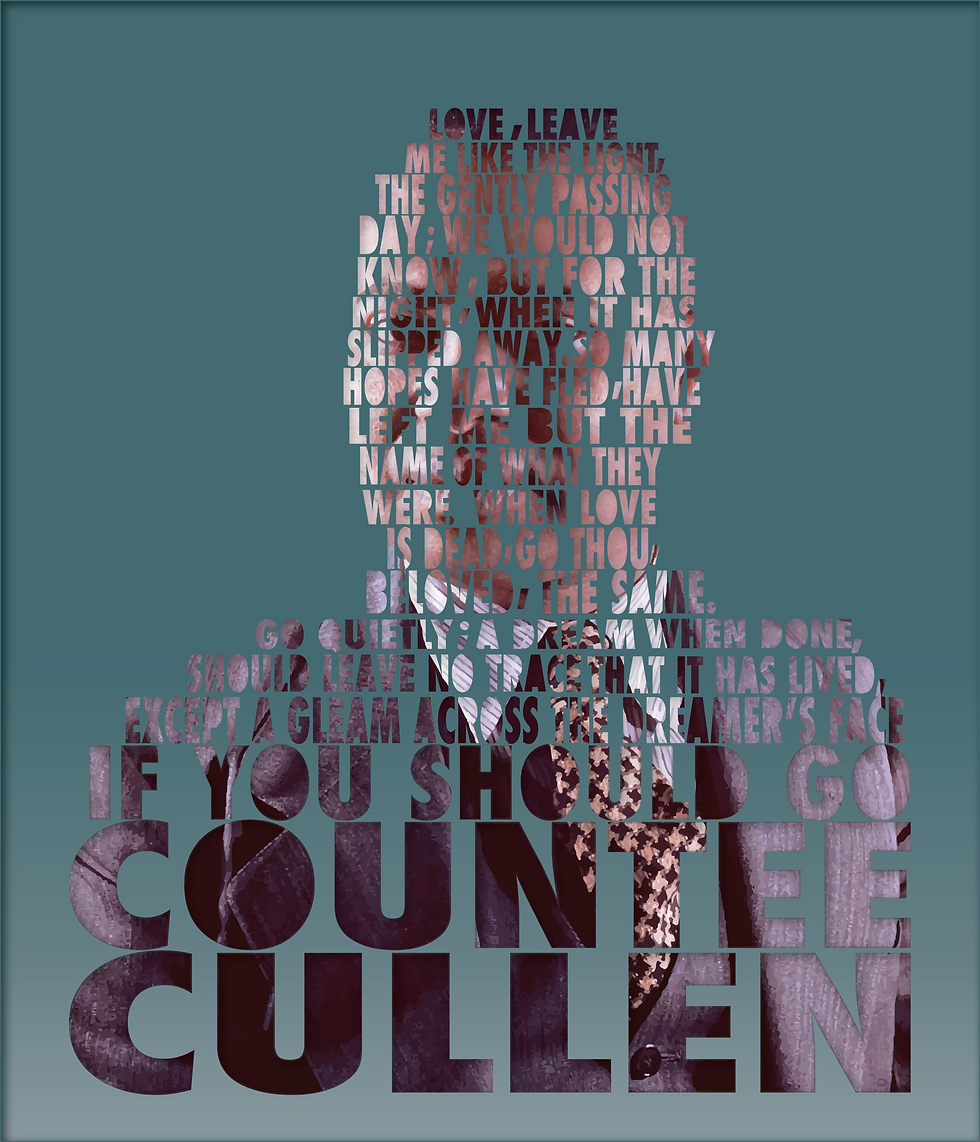Historically Unheard: Frances Ellen Watkins Harper
- poetryunheard
- Feb 24, 2021
- 4 min read
Updated: Aug 8, 2022
By Jasmine Williams
This is not a complete biography of the life of Frances Ellen Watkins Harper, although there are many of which I'll include the links of just in case Harper captures your heart the way she did mine.
I will, however, start with the fact that Harper was born in Baltimore, Maryland to free African parents in 1825. Free! It's the common misconception that ALL persons of the African Diaspora at this time were slaves and although that is regretfully true of a lot of the Diaspora, through no fault of their own, (which we absolutely need to acknowledge) it's important to also recognise that black people are so much more than submissives subjected to slavery and have a rich and prosperous history that goes back thousands of years. Harper may have been born free, but she dedicated her life to gain freedom for those who weren't so lucky which is a sacrifice that must have taken incredible commitment and strength. As a poet, writer and activist, Harper used her own life experience, observations and her strong relationship with Christianity to inform her words which gives her work an edge that really captures the reader in it's authenticity.

Unfortunately Harper became an orphan at the age of three, however living in the care of her aunt and uncle shaped her life and beliefs that became a strong foundation for the rest of her life. Harper's uncle was an abolitionist who practiced self-taught medicine, was the organiser of a black literary society who also established his own school which Harper attended until the age of thirteen. It's evident how her uncle inspired her and despite moving into the world of domestic work at a young age, she simultaneously fed her passion for literature and continued to be curious about the world around her. Harper's poem 'Learning to Read' (1854) details the difficulty to obtain a decent education as a black person of that era but they came up with some very inventive ways to obtain literature! Portrait by Tania Frank (@tansart_studio)
Naturally, Harper fell into teaching and left Maryland at the age of twenty-six to become the first woman instructor of domestic science at Union Seminary: a school for free African Americans in Ohio- no small feat! By this time she had already published 'Forest Leaves' (1845), Poems on Miscellaneous Subjects (1854), which was reprinted 20 times and Reconstruction; Poems (1857). Commonplace.online notes:
"Education became one of the crucial pillars of the black freedom struggle. Due to people like Harper’s Uncle Watkins, the succeeding generation of black activists, which included Harper, were able to put their demands, thoughts, and ideas into writing, defying stereotypes. Forest Leaves is illustrative of the success of the antebellum black fight for literacy and education, while adding to the field of early African American literature.”

Harper was in the midst of a stint of teaching in Pennsylvania when the news that her hometown, Maryland, had passed a law banning the entry of free African Americans living in the North. Unable to return home to see her family for fear of being imprisoned or sold into slavery, she directed all of her efforts to the anti-slavery cause and for the next eight years, travelled across the United States and Canada as a lecturer, speaking regularly at events on the abolitionist circuit. You can only imagine how emotionally challenging this must have been when reading the lines in her poem 'Yearnings for Home':
"Oh let me go I'm weary here,
And fevers scorch my brain,
I long to breathe my native air,
Breathe o'er each burning vein."
Tired perhaps of words without action, Harper made it one of her missions to help slaves escape through the Underground Railroad alongside abolitionist William Still. The same Underground Railroad of which the celebrated Harriet Tubman was a conductor, who also hailed from Maryland. It is often wondered why Harper's name does not achieve the recognition today as that of Tubman's, many think it was because of the fierce, iconic picture of Tubman with a rifle, but lets not forget how Harper's words carried the same fire. In 1866, Harper spoke at the National Woman’s Rights Convention in New York where her renowned speech, “We Are All Bound Up Together,” emphasized that Black women were facing the double burden of racism and sexism at the same time, words also enforced by activist Angela Y. Davis.
"We are all bound up together in one great bundle of humanity, and society cannot trample on the weakest and feeblest of its members without receiving the curse in its own soul."
You can read the full speech here which includes detailed insights into Harper's world and highlights her absolute strength of character: https://www.blackpast.org/african-american-history/1866-frances-ellen-watkins-harper-we-are-all-bound-together/

Maybe now you better understand how Harper came to be a household name in the nineteenth century, it's definitely been a wonderful journey of learning for me. Among some of her achievements Harper was superintendent of the Colored Section of the Philadelphia and Pennsylvania Women’s Christian Temperance Union, co-founder and vice president of the National Association of Colored Women, a member of the American Women’s Suffrage Association and the director of the American Association of Colored Youth. Not to mention all of the people she influenced and is still influencing from beyond the material world, today.








Comments